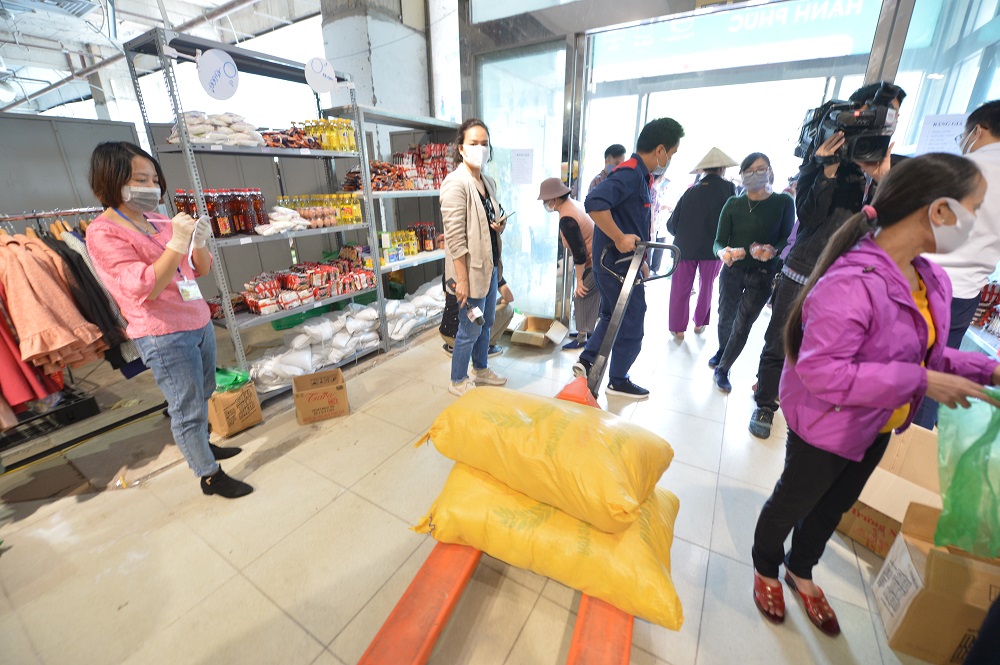Inflation in Vietnam is still under control.
Many analysts predicted that Vietnam's average CPI would remain below 4.0% yoy in 2022.

Vietnam’s headline inflation rose 3.1% yoy in July 2022
A new message from the Government
In late-July, Prime Minister Pham Minh Chinh had consecutive meetings with relevant ministries, sectors, and government members and gave the following message: "Controlling inflation and stabilizing macroeconomics are the top priorities right now."
After that, the Prime Minister signed Official Letter No. 679/CD-TTg dated July 31, 2022 requesting the implementation of measures to control the prices of goods and services. Specifically, the Government will closely monitor and take measures (if necessary) to stabilize the prices of consumer goods, especially those with reduced input material prices but output has not decreased accordingly.
In addition, Ms. Nguyen Thi Hong, Governor of the State Bank of Vietnam (SBV) said that the SBV will maintain the credit growth target of 14% for 2022 as planned from the beginning of this year. Previously, a number of industry associations and economic experts had proposed the SBV to raise the credit growth limit of the banking system in 2022 to 15–16%. This shows the prudent management attitude of the SBV in the face of remaining uncertainties, including (1) the Fed will raise the policy rate further in late-2022, (2) the strong US dollar puts pressure on Vietnam's exchange rate, and (3) high inflationary pressure in coming months as domestic demand recovers. In addition, the SBV wants to prevent the race to raise deposit interest rates among commercial banks to finance "hot" credit growth.
Mr. Dinh Xuan Hinh, analyst at VNDirect said inflation control and macro-economic stabilization are the prerequisites to maintaining a favorable macro environment in order to achieve a high economic growth rate not only in 2022 but also in the period of 2023-2024 thereafter.

Inflation control
The domestic gasoline price has been adjusted down 4 times in July thanks to (1) the government's reducing the environmental protection tax from 500-1,000 VND/liter for petroleum products from July 6, 2022; and (2) global crude oil and petroleum products prices fell significantly in July. Specifically, the price of gasoline E5 RON 92 decreased by 21.7% in July to VND24,520/liter while the price of gasoline RON 95 decreased by 22.1% to VND25,600/liter. The decrease in domestic petroleum prices was the main factor that helped lower inflation in July.
According to GSO, Vietnam’s headline inflation rose 3.1% yoy in July 2022 (lower than the level of 3.4% yoy in the previous month). On a month-to-month basis, Vietnam’s CPI edged up 0.4% (vs. 0.7% in June 2022), mostly driven by the increase in the food price index (1.4% MoM). On the other hand, the transportation price index fell 2.9% MoM thanks to lower gasoline prices. The Government also decided to reduce the import tax on petrol from 20% to 10%, leading to further adjustment of domestic petrol prices in the near future.
The increase in pork prices (which has a great impact on the food and foodstuff price index as well as the country's general CPI) has shown signs of cooling down. After exceeding the VND70,000/kg threshold in mid-July, the price of live hogs has gradually decreased and is now trading at VND64,000-65,000/kg.We forecast that live hog prices will fluctuate in the range of VND60,000-70,000/kg in the coming months.
Consequently, Mr. Dinh Xuan Hinh still believes that the Government could be able to control inflation to meet the government's target of keeping the 2022 average CPI below 4.0% yoy. Overall, VNDirect maintained its forecast for Vietnam’s average CPI in 2022 at 3.5% yoy.








